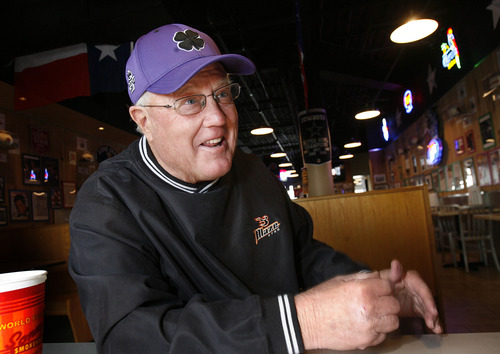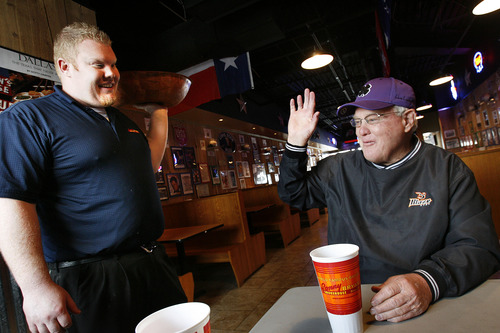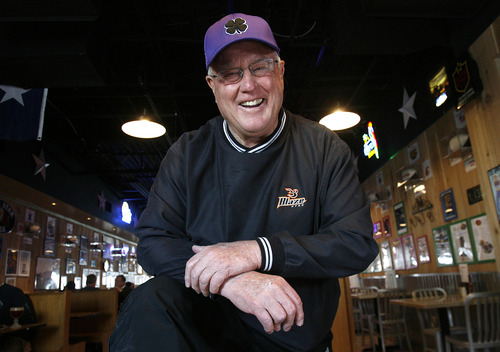This is an archived article that was published on sltrib.com in 2013, and information in the article may be outdated. It is provided only for personal research purposes and may not be reprinted.
In Hawaii, Ron McBride learned to follow directions that never included addresses, only landmarks, such as the abandoned car, the dog tied to a tree and the guy selling cookies. He became acquainted with influential folks such as Maui Mike and the Seaweed Man. He immersed himself in the culture by taking off his shoes, sitting on the floor and eating everything he was offered.
"And you'd better like it," McBride said. "Most of it, I liked."
And the Hawaiians loved him, explaining how he made major in-roads in recruiting the islands for the University of Utah.
"The people there, they just opened their doors to this man," said Lauvale Sape, a former Ute player. "They think of him more as a family member."
McBride became familiar with Polynesian athletes a quarter century before becoming Utah's coach in 1990. While coaching at Gavilan Junior College in California, he arranged for four Hawaiian players to live next door while his neighbors were away.
Working for former Hawaii coach Dick Tomey at Arizona reinforced McBride's belief in the impact of Polynesian players. So when he took the Utah job, he was determined to take advantage of Salt Lake Valley's Polynesian community. Because so many recruits had relatives in Utah, "They've all got a reason to be here," McBride said.
McBride broke into BYU's stronghold on the North Shore of Oahu and established the Utes' presence throughout Hawaii. McBride credits Polynesian players with having "as much to do with changing the culture of Utah football as anybody," bringing toughness, enthusiasm and loyalty to the program. In 1995, Utah landed four coveted Hawaiian players: running back Chris Fuamatu-Ma'afala, receiver Donny Utu and linebackers Talia Lauve and Kautai Olevao.
Those players were well-known. In other cases, McBride made his own discoveries. Driving around the North Shore, he once glimpsed brothers Ma'ake and Chris Kemoeatu walking near their high school and kept track of them. He found Sape lifting weights as a high school sophomore and said, "I want that kid."
Retelling the story, Sape marveled, "He knows nothing about me." Yet Sape came to Utah's youth football camp that summer, was offered a scholarship and stuck with his commitment to McBride, even while being widely pursued as a senior.
McBride sometimes needed a translator to help in recruiting because parents who had come to Hawaii from American Samoa or Tonga did not speak English. He bonded easily with all the families, relating well to them.
"He understood cultural things," said Vai Sikahema, a former BYU star.
"They can tell whether you're real," McBride said. "They'll have checked up on you before you ever come in."
At Utah and later at Weber State, where Hawaiian QBs Cameron Higgins and Mike Hoke thrived under McBride, the coach adopted a slogan of "MAFU" — mental toughness, attitude, fanatical effort and unity. It's not just an acronym. It's also the Tongan word for "heart."







